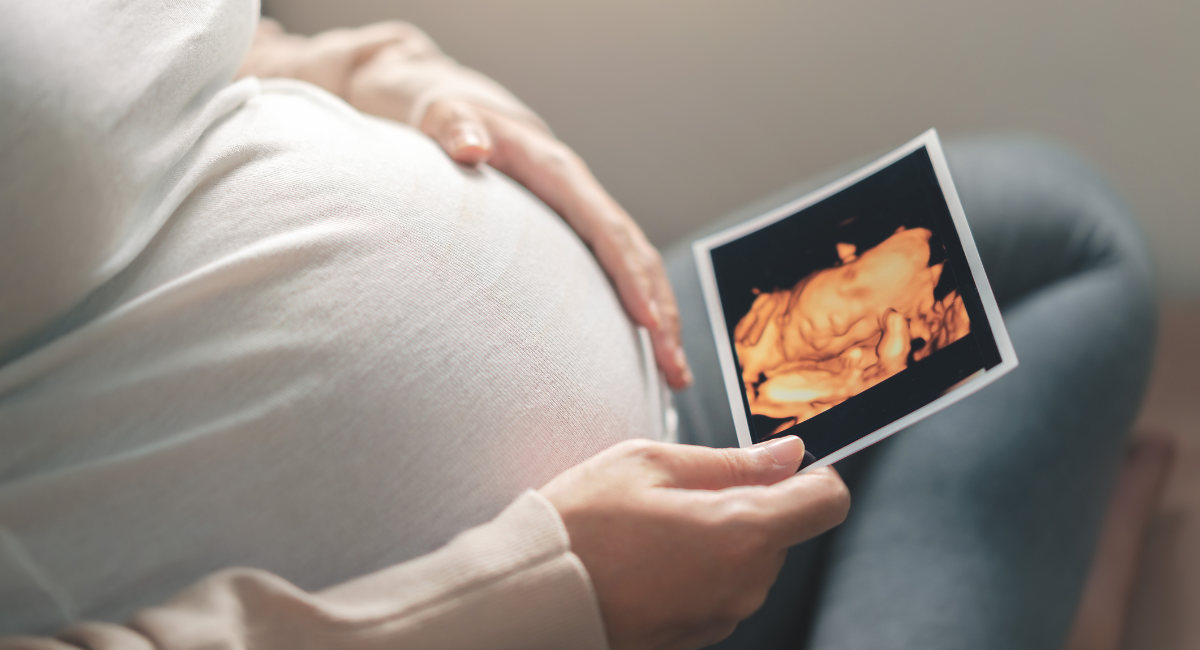(Daily Signal) Efrat sits in a quiet Jerusalem neighborhood, a pregnancy center housed in a modest-looking building with a noble goal: to give Jewish women the resources necessary to choose to save their babies.
Efrat has saved the lives of 83,467 children since its founding, according to the cheery signs on the wall in the pregnancy center’s storage center, where center Executive Director Nir Salomon energetically explained the pregnancy center’s mission to our visiting group of American Catholics.
The pro-life organization has helped at least 100 more babies come into the world since my early March visit to the center, Salomon shared in a phone interview Monday. He emphasized that Efrat aims to empower women to make their own choices about their babies without pressure from husbands, boyfriends, parents, or other outside influences.
“When a woman comes to us, we tell her, ‘You have an option to abort. It is legal in Israel. But you also have the option to have a child,’” he said. “And that is the unique proposition of Efrat.”
Efrat was founded by the late Holocaust survivor Herschel Feigenbaum, who believed “that our children are our future.” Feigenbaum wanted to create a nonprofit encouraging childbirth to replace the many Jewish children slaughtered throughout the Holocaust, the organization’s website explains.
That dream didn’t take off until Dr. Eli Schussheim came along in 1977 and officially launched the organization now known as Efrat, intending to offer women professional consultations on their pregnancies. Schussheim’s goal evolved into offering women even more than that—giving them the choice not to abort their unborn babies, and empowering them to choose life through resources and opportunities.
Many Israeli women considering abortion already have children, Salomon said, noting that 56% of the women Efrat helps are married. Often, a woman’s husband has told her that they cannot afford another child. Efrat wants these families to know that they can, in fact, afford another baby—and Efrat will help make that baby’s entry into the world smoother.
“We will provide everything they need so that an additional baby is not an additional financial expense,” Salomon said. “We can’t solve all of your money problems, but the baby won’t be an additional expense.”
A family’s fear may boil down to something as simple as a crib, Salomon said. The family cannot afford a crib and thus feel like they cannot afford a child. That simple act of providing Israeli families with that crib, or even with diapers or formula, is a major game-changer.
“We bring them to this room and we show them, this is what you are going to get when the baby is born,” Salomon explained, as he walked about the storage room, pointing to diapers, baby formula, strollers, bath basins, and more.
Concerns do not end there, of course. Many families want to know how they will afford their baby after he or she is born. Here Efrat also has an answer — for the first two years after the baby’s birth, Efrat sends the families a box of baby products and food every month.
Those packages are put together by volunteers, many of whom are Israeli youth. According to Efrat’s estimates from a few years ago, the center sends eight to 11 baby packages a day and over 3,500 food packages every month.
The center plans to soon provide free housing to take in pregnant women whose families have turned them away. Expectant mothers can live in the rent-free lodgings during their pregnancy and for six months afterward.
Efrat also wants the mother to become physically, emotionally, and financially secure — through the center’s new “Working Moms” program, Efrat performs vocational assessments for the women and seeks to connect them with government bodies and place them in jobs where they can flourish.
“We started these programs because we felt responsible for the next stage,” Salomon said.
The pregnancy center’s volunteers offer emotional support and counseling as well as the aforementioned financial support. If a doctor has recommended that a woman abort her unborn baby, Efrat’s team of medical professionals will offer her a free second opinion—a service informed by one of the babies that Schussheim saved earlier in his career by offering a mother a second opinion (an occurrence that helped Efrat come into conception).
“When a woman dials our number, it’s because poverty has cornered her into believing that abortion is her only option,” one of the center’s pamphlets reads. “For thousands of women and their babies, your help can mean the difference between terrifying hopelessness and a joyous, independent future.”
Read the entire article at the Daily Signal.
Editor’s Note: This article was published at the Daily Signal and is reprinted here in part with permission.








